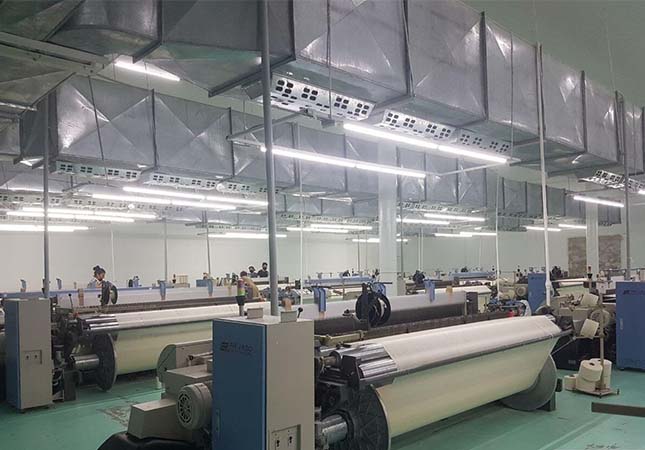The Indian textile industry has always been a dynamic and vibrant sector, contributing significantly to the country's economic growth and employment generation. Within this expansive industry, the PC (Polyester-Cotton) yarn market holds immense importance due to its versatile applications in various textile products. Despite its past successes, the Indian PC yarn market is currently facing a bearish trend, presenting a set of challenges for industry players.
The PC yarn market, known for its durability, strength, and affordability, has been adversely impacted by a confluence of factors, such as textile machinery evolution, global market dynamics, changing consumer preferences, and supply chain disruptions. As a result, both manufacturers and suppliers are grappling with a decline in demand, leading to a downward spiral in prices and profitability.

By understanding the challenges faced by the industry and examining the strategies implemented by market players to navigate these circumstances, we can gain insights into the future prospects of the PC yarn market in India.
Market Status in India
The prices of polyester-cotton (PC) yarn in the Ludhiana market continued to be bearish, with a slight decline of ₹4-5 per kg. On the other hand, there was an increase in the prices of polyester spun yarn due to heightened demand. In the Mumbai market, both viscose vertex and ring spun yarn saw price increases, while the Surat market witnessed a slight drop in the price of viscose compact yarn. Despite these fluctuations, trade sources reported slightly improved buying activity for both polyester and viscose yarn. However, the polyester yarn market remains uncertain about the implementation of the quality control order in the country.
In the Ludhiana market, PC yarn exhibited a bearish tone as prices dropped by ₹4-5 per kg. Conversely, there was an upward trend in the prices of polyester spun yarn, driven by heightened demand. According to a local trader interviewed by Fibre2Fashion, the market displayed a mixed trend, with improved sentiment observed for polyester spun yarn due to increased demand.
Traders expressed uncertainty and confusion regarding the implementation of the Quality Control Order (QCO), and industry organizations expressed their hopes for a delay in its implementation. However, the government has not made any official announcement regarding a deferment of the order yet.
In Ludhiana, the prices of 30 count PC combed yarn (48/52) remained steady at ₹195-206 per kg (inclusive of GST). Similarly, the 30 count PC carded yarn (65/35) also showed stability, with prices ranging from ₹185-190 per kg. However, the 30 count poly spun yarn experienced an increase in the North Indian market, trading at a higher range of ₹154-162 per kg (inclusive of GST). This marked a price increase of ₹2 per kg.
Additionally, according to Fibre2Fashion's market insight tool TexPro, recycled polyester fiber (PET bottle fiber) witnessed a rise in prices and was quoted at ₹71-74 per kg.
In the Surat market, there was an upward trend in the prices of poly spun yarn, accompanied by improved market sentiments. The 30 count poly spun yarn was traded at ₹136-137 per kg (excluding GST), while the 40 count poly spun yarn was priced at ₹150-152 per kg. In Surat, the 30 count viscose compact yarn (local) was recorded at ₹205-206 per kg (excluding GST).
Meanwhile, in the Mumbai market, there was an increase of ₹2-3 per kg in the prices of viscose vertex and ring spun yarn. Imported vertex yarn was sold at ₹187-188 per kg, while the local ring spun yarn was priced at ₹197-198 per kg.
Earlier, Reliance Industries Limited (RIL) had set prices for various polyester raw materials. PTA (Purified Terephthalic Acid) was priced at ₹82.40 per kg, reflecting an increase of ₹0.80. MEG (Monoethylene Glycol) was priced at ₹48.20 per kg, indicating a decrease of ₹0.70. Additionally, MELT (Mono Ethylene Glycol) was priced at ₹87.25 per kg, reflecting an increase of ₹0.45. These new prices came into effect from the previous Saturday. In the first half of July 2023, RIL maintained the prices of polyester staple fibre (PSF) at ₹102 per kg.
In North India, cotton prices experienced an increase of ₹100 per maund (equivalent to 37.2 kg) due to stronger signals from the global market. Trade sources reported that spinners were eager to purchase the natural fiber following the recent rise in ICE cotton prices. They anticipate further increases in cotton prices. In Punjab, the natural fiber was traded at ₹5,900-6,000 per maund, while in Haryana, it ranged from ₹5,650-5,750 per maund. In upper Rajasthan, prices ranged from ₹6,000-6,125 per maund. In lower Rajasthan, cotton was sold at ₹55,000-56,600 per candy (equivalent to 356 kg).
SUNTECH Textile Machinery offers a comprehensive range of products that cater to various fabric types. Our product lineup includes, but is not limited to, pinking machine, loom machine, weaving machine, beam truck, fabric cutting machine, motorized beam trolley, beam storage, and fabric inspection machine. With our innovative approach and extensive experience, SUNTECH Textile Machinery remains at the forefront of the textile industry. We warmly welcome requests for quotes and cooperation opportunities from you!




